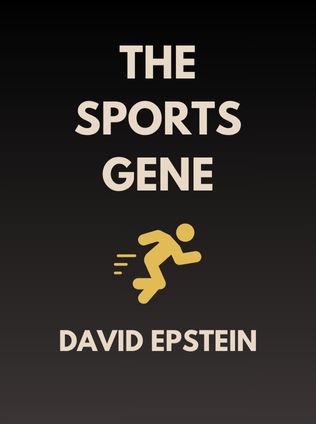
The Sports Gene
Inside the Science of Extraordinary Athletic Performance
By David Epstein
Published 08/2013
About the Author
David Epstein is a celebrated science and sports journalist, renowned for his ability to weave complex scientific ideas into engaging narratives. His career began with an interest in environmental science, but it was his passion for sports and the mysteries of human performance that led him to explore the intersection of genetics and athletics. Epstein’s experience as a senior writer for Sports Illustrated provided him with a unique perspective on the factors that contribute to athletic success. This perspective is clearly reflected in his best-selling book, The Sports Gene, where Epstein challenges the conventional wisdom surrounding the role of practice in sports. His work has earned him a reputation as a thought leader in the field of sports science, and his writings continue to inspire both athletes and coaches to look beyond traditional training methods to understand the deeper, underlying factors that contribute to success in sports.
Main Idea
The core argument of The Sports Gene is that while practice and hard work are crucial for athletic success, they are not the sole determinants. Epstein posits that genetic predispositions significantly influence an individual's potential in sports. By dismantling the popular "10,000-hour rule"—the idea that anyone can achieve mastery in any field with enough practice—Epstein presents a more complex picture of what it takes to excel in sports. He delves into the interplay between genetics, environment, culture, and training, arguing that these factors collectively shape an athlete's ability to reach the pinnacle of their sport.
Table of Contents
- Introduction
- The Role of Practice in Sports Performance
- The Genetic Advantage
- The Impact of Environment
- Cultural Influences on Athletic Success
- Conclusion
The Role of Practice in Sports Performance
One of the most widely accepted beliefs in sports is that practice makes perfect. This notion, popularized by Malcolm Gladwell's "10,000-hour rule," suggests that with enough practice, anyone can achieve expertise in any field, including sports. However, in The Sports Gene, David Epstein challenges this idea by presenting compelling evidence that practice, while important, is not the sole factor in achieving athletic greatness.
Epstein begins by acknowledging that practice does indeed play a significant role in sports performance. He cites research showing that deliberate practice—practice aimed at improving specific aspects of performance—can lead to substantial gains in skill. However, he also highlights studies that show vast differences in the amount of practice required for individuals to reach similar levels of proficiency. For example, in one study of ultra-endurance athletes, those who performed at similar levels had logged vastly different amounts of practice time, with some athletes training ten times longer than others to achieve comparable results.
"Practice does matter, but its power and potential vary by individual." – David Epstein
Epstein further debunks the myth that practice alone can lead to mastery by examining the role of innate ability. He points out that while practice can improve specific skills, it cannot overcome certain physical or genetic limitations. For instance, in sports where physical attributes like height, limb length, or muscle composition are critical, no amount of practice can compensate for a lack of these genetic advantages.
To illustrate this point, Epstein discusses the concept of "fast-twitch" and "slow-twitch" muscle fibers. Fast-twitch fibers are more suited for explosive movements like sprinting, while slow-twitch fibers are better for endurance activities like long-distance running. The proportion of these muscle fibers is largely determined by genetics, meaning that an athlete's potential in these sports is influenced by their genetic makeup from birth.
Moreover, Epstein explores how practice contributes to an athlete's mental game. He explains that elite athletes often develop sophisticated mental models of their sport through extensive practice. These mental models allow them to process information more quickly and make better decisions during competition. For example, studies have shown that professional basketball players are better than coaches or non-players at predicting whether a shot will go in based on a brief video clip of the shooter. This ability is not purely instinctual but is honed through years of practice and experience.
Epstein also touches on the psychological aspects of practice, noting that the way an athlete practices can significantly impact their performance. Deliberate practice, which involves setting specific goals and focusing on areas of weakness, is far more effective than simply going through the motions. However, even the most well-structured practice regimen cannot guarantee success if the athlete lacks the genetic predispositions needed to excel in their chosen sport.
Sign up for FREE and get access to 1,400+ books summaries.
You May Also Like
The Subtle Art of Not Giving a F*ck
A Counterintuitive Approach to Living a Good Life
By Mark MansonRich Dad Poor Dad
What the Rich Teach Their Kids About Money - That the Poor and Middle Class Do Not!
By Robert T. KiyosakiHow To Win Friends and Influence People
The All-Time Classic Manual Of People Skills
By Dale Carnegie



















